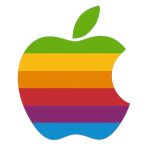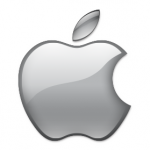In the last decade, Apple has successfully risen to the forefront of consumer technology. During this transformation from obscure computer company to leader in consumer and media technology we have seen the death of the hobbyist community and the rise of an icon of fashion and design.
When Apple was more obscure, it was difficult to be a fanboy. Growing up I would be ridiculed at school for using a Mac. The other kids would spout off the typical argument that the “Macs suck” (such a well structured argument…) Whenever I would find another Mac User, we would have an instant connection and friendship. Being in the minority automatically created a sense of community. We were enthusiasts. We looked forward to Mac World and tinkering/fixing/upgrading our machines. We had to endure the persistent rumors that Apple was going out of business (for reals this time).
The lack of acceptance of Apple in the world lead to that cult-of-the-Mac following that Apple became known for. Most Apple users fit into that category of “round pegs in square holes” that the infamous “Think Different” campaign exemplified. Those were truly the golden days of Apple Computer for their loyal users.
“Here’s to the Crazy Ones! The misfits. The rebels. The troublemakers. The round pegs in the square holes. The ones who see things differently. They’re not fond of rules. And they have no respect for the status quo. You can praise them, disagree with them, quote them, disbelieve them, glorify or vilify them. About the only thing you can’t do is ignore them. Because they change things.”
When Steve Jobs returned to Apple in 1998, he turned the company around. He revolutionized the way that consumers looked at computers. He realized the power of marketing to women and the power of aesthetics in computer design. Once computers became an icon of design and beauty, they also became a symbol of class. Today, many individuals purchase computers based solely on the fact that they are “stylish” or “popular.”
Now, when I see a Mac user, and I randomly go talk to him or her, I am no longer greeted with the enthusiastic “You’re a Mac user too?” which was once so prevalent. Now I get weird stares, or realize that they are using Vista on that beautiful machine. People are no longer loyal to the computer, nor the ideology, but the idea of being one of the social elite.
The computers these days are much more beautiful and elegant that the old beige computers of yore. OS X is rock solid and gorgeous compared to the relatively simplistic Mac OS 5-9. Yet, part of me still longs for those days when we really were a group that stood apart from the crowd.

